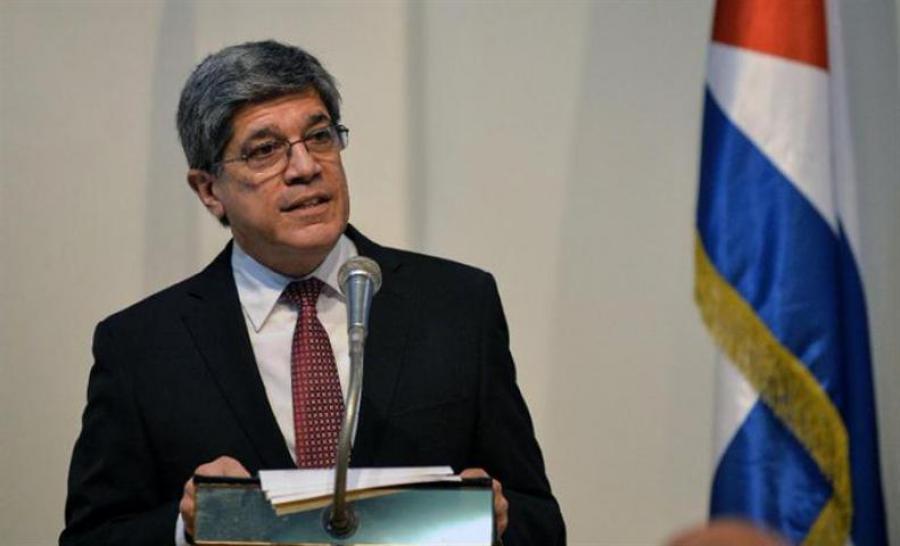WASHINGTON/HAVANA, (Reuters) – China has reached a secret deal with Cuba to establish an electronic eavesdropping facility on the island roughly 100 miles (160 km) from Florida, the Wall Street Journal said yesterday, but the U.S. and Cuban governments cast strong doubt on the report.
Such a spy installation would allow Beijing to gather electronic communications from the southeastern U.S., which houses many U.S. military bases, as well as monitor ship traffic, the newspaper reported, citing U.S. officials familiar with classified intelligence.
The U.S. Central Command headquarters is based in Tampa. Fort Liberty, formerly Fort Bragg, the largest U.S. military base, is in North Carolina.
The countries have reached an agreement in principle, the officials said, with China to pay Cuba “several billion dollars” to allow the eavesdropping station, according to the Journal.
“We have seen the report. It’s not accurate,” John Kirby, spokesperson for the White House National Security Council, told Reuters. But he did not specify what he thought was incorrect.
He said the United States has had “real concerns” about China’s relationship with Cuba and was closely monitoring it.
Brigadier General Patrick Ryder, a U.S. Defense Department spokesperson, said: “We are not aware of China and Cuba developing a new type of spy station.”
In Havana, Cuban Vice Foreign Minister Carlos Fernandez de Cossio dismissed the report as “totally mendacious and unfounded,” calling it a U.S. fabrication meant to justify Washington’s decades-old economic embargo against the island. He said Cuba rejects all foreign military presence in Latin America and the Caribbean.
A spokesperson for the Chinese Embassy in Washington said: “We are not aware of the case and as a result we can’t give a comment right now.”
The agreement between the two U.S. rivals, both ruled by communist governments, has caused alarm in President Joe Biden’s administration, the newspaper said, posing a new threat close to America’s shores.
The Journal said U.S. officials declined to provide more details about the proposed location of the listening station or whether construction had begun. I
The reported deal comes as Washington and Beijing are taking tentative steps to soothe tensions that spiked after a suspected Chinese high-altitude spy balloon crossed the United States before the U.S. military shot it down off the East Coast in February.
It could also raise questions about a trip to China that U.S. officials say Secretary of State Antony Blinken is planning in coming weeks. Washington’s top diplomat had earlier scrapped the visit over the spy balloon incident.
Ties have deteriorated over disputes ranging from military activity in the South China Sea and near Taiwan, Beijing’s human rights record, and technology competition.
“We have had real concerns about the China’s relationship with Cuba, and we have been concerned since day one of the administration about China’s activities in our hemisphere and around the world,” the White House’s Kirby said.
Senator Mark Warner, chairman of the Select Committee on Intelligence, and Senator Marco Rubio, the panel’s vice chair, said in a statement they were “deeply disturbed” by the report and urged the Biden administration “to take steps to prevent this serious threat to our national security and sovereignty.”
A former U.S. intelligence official said on condition of anonymity that a Chinese listening post would be a “big deal,” marking an expansion of Beijing’s spying capabilities and giving it access to signals intelligence as far north as Washington.
If such a facility is built, the Chinese will use Cuba “as a beachhead for collection against the United States,” said Daniel Hoffman, a former senior CIA undercover officer.
However, the U.S. has a long history of spying on China in its own neighborhood. It is widely reported to have used Taiwan as a listening post for the mainland and regularly flies spy planes in the South China Sea, angering Beijing.
The head of Taiwan’s National Security Bureau told the island’s parliament in April that Taiwan was conducting real-time encrypted intelligence sharing with Five Eyes partners, which includes the U.S.
A cash infusion would likely be welcomed in Cuba, where the economy is sputtering and inflation, fuel shortages, plunging farm production and a cash crunch continue to fan discontent.
Relations between Washington and Havana remain strained. The Biden administration last year partially rolled back some Trump-era restrictions on remittances and travel to the island, but Cuban officials called the steps insufficient.
The intelligence on the agreement was gathered in recent weeks and was convincing, the Journal reported. The officials said it would allow China to conduct signals intelligence, including emails, phone calls and satellite transmission.
Cuba, an old Cold War foe of the United States, has long been a hotbed of espionage and spy games.
The Cuban missile crisis in 1962 began after Moscow began placing Soviet nuclear weapons on the island. It backed down and removed the missiles, but it is widely regarded as the moment when the United States and the Soviet Union came closest to a nuclear confrontation.
The Soviets installed a spy base on the island at Lourdes, just south of Havana, in the mid-1960s, with parabolic antennas aimed at Cuba’s northern neighbor. Russian President Vladimir Putin closed the facility in the early 2000s.










